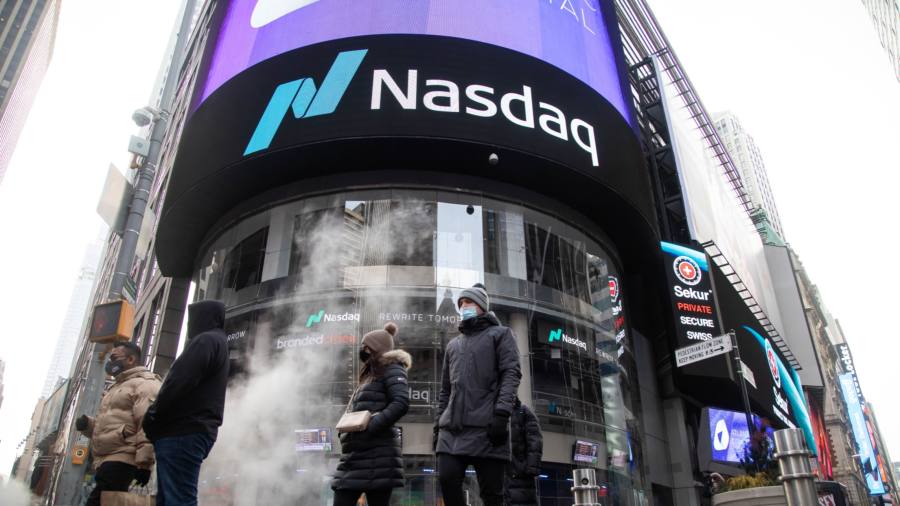[ad_1]
Global stocks extended their gains on Tuesday, as investors scooped up bargains after the longest streak of quarterly declines for equity markets since the 2008 financial crisis.
A FTSE gauge of worldwide shares rose 1 per cent in London morning dealings, with Europe’s regional Stoxx 600 adding more than 2 per cent and futures contracts tracking Wall Street’s S&P 500 rising 1.8 per cent. The broad S&P had on Monday closed 2.6 per cent higher.
Equity markets have sold off broadly this year, as the Federal Reserve led the charge on raising interest rates aggressively to curb stubbornly high inflation. Higher borrowing costs and fears of the Fed inducing a recession with tighter monetary policy have weighed heavily on share prices, fuelling three consecutive quarters of losses.
But with US shares now down 25 per cent year to date, some analysts and investors are pointing to opportunities to buy them on the cheap.
“We turn tactically bullish equities for a [fourth quarter] sharp rally,” analysts at Cantor Fitzgerald said this week. “We believe that inflation is falling sharply as we speak and will soon be recognised by the Fed,” they added.
“It has already been recognised in [the government bond market]. When this has happened historically, stocks bottom and rally sharply.”
Markets were on Tuesday pricing in expectations of US interest rates reaching 4.35 per cent by March 2023, down from estimates last Monday of almost 4.7 per cent. The Fed’s current target range stands at 3 to 3.25 per cent, after three straight interest rate increases of 0.75 percentage points.
A manufacturing index released on Monday showing activity in the US factory sector shrank at its fastest pace since May 2020 has helped at least temporarily ease fears about rate increases.
But some warned against too much optimism. “It’s not rare to see some rebound within a bear market,” said Mabrouk Chetouane, head of global market strategy at Natixis Investment Managers.
“We don’t have enough data to feed the scenario of a pivot from central banks”, he said, adding that upcoming data releases on US unemployment and services activity will provide further clues.
“With sentiment toward equities already very weak, periodic rebounds are to be expected,” said Mark Haefele, chief investment officer at UBS global wealth management. “But markets are likely to stay volatile in the near term, driven primarily by expectations around inflation and policy rates.”
Haefele added that some of last week’s selling pressure may have stemmed from quarter-end rebalancing of portfolios.
Government bond prices rose on Tuesday, following gains in the previous session, with the yield on the 10-year US Treasury note slipping 0.07 percentage points to 3.58 per cent. The two-year yield, which is more sensitive to changes in interest rate expectations, lost 0.1 percentage point to 4.01 per cent.
UK gilts rallied more sharply, with the 10-year yield falling 0.16 percentage points to 3.79 per cent. The gilt market was last week gripped by volatility, after Westminster’s proposed tax cuts and extensive borrowing plans spooked investors and sparked a historic sell-off in long-dated debt.
The selling eased last Wednesday when the Bank of England intervened to soothe the turmoil, with sentiment improving further on Monday after Liz Truss’s government was forced into a U-turn over the planned tax cuts for the UK’s higher earners.
It also emerged this week that UK chancellor Kwasi Kwarteng will bring forward the publication of his plan to cut debt, releasing details later this month, rather than the previously signalled date of November 23.
The pound advanced 0.3 per cent on Tuesday to $1.136 against the dollar, back to levels last seen before the chancellor unveiled his “mini” Budget 11 days ago.
[ad_2]
Image and article originally from www.ft.com. Read the original article here.

